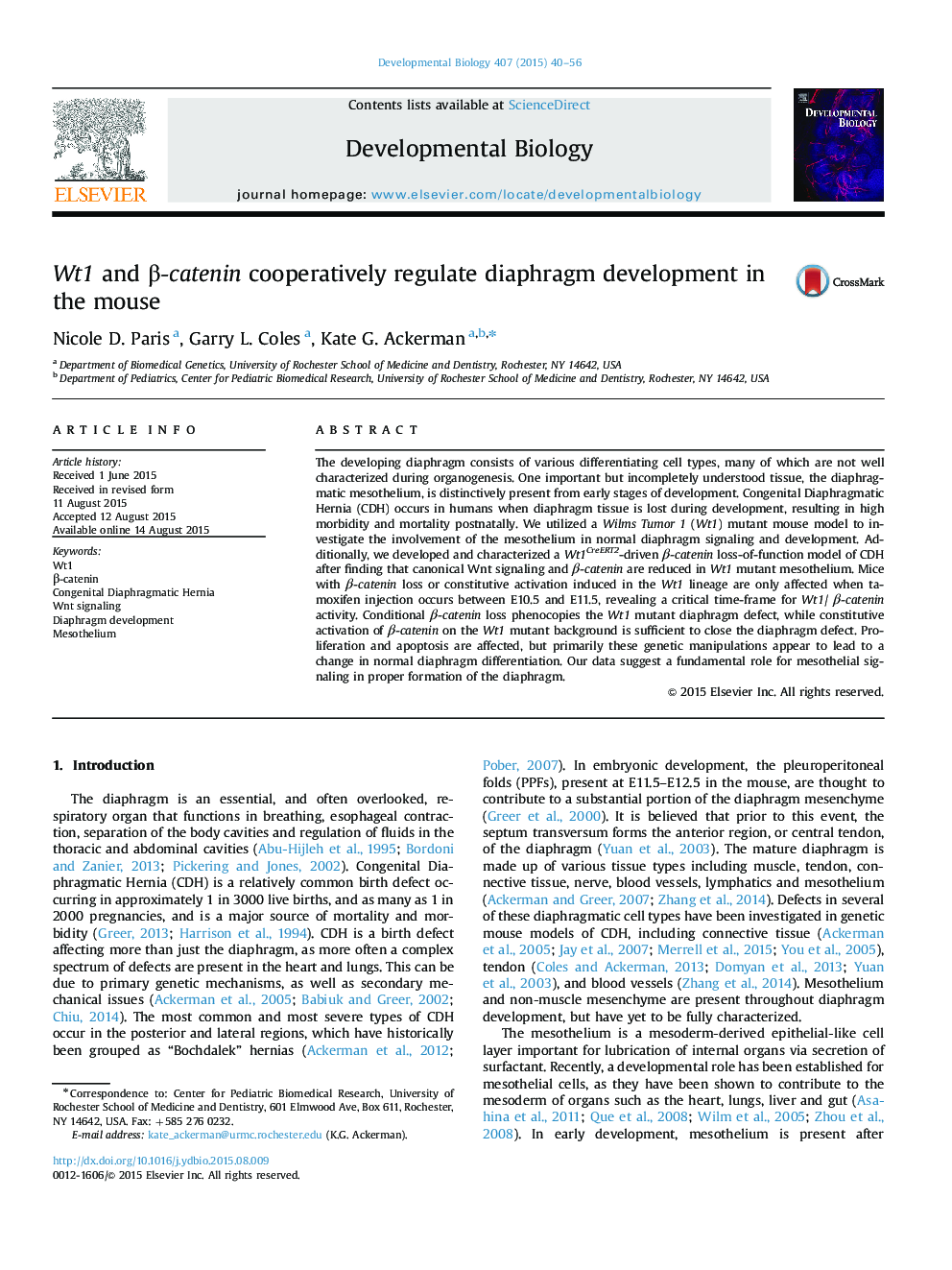| کد مقاله | کد نشریه | سال انتشار | مقاله انگلیسی | نسخه تمام متن |
|---|---|---|---|---|
| 2172885 | 1093640 | 2015 | 17 صفحه PDF | دانلود رایگان |

• An inducible Wt1CreERT2 mouse CDH model using β-catenin floxed mice was developed.
• Wt1 regulates β-catenin expression in the mesothelium of the developing diaphragm.
• β-catenin in Wt1+ cells is necessary and sufficient to drive diaphragm development.
• Essential functions of β-catenin occur at a specific time in diaphragm development.
• Wt1, but not β-catenin, critically regulates diaphragm mesothelium maturation.
The developing diaphragm consists of various differentiating cell types, many of which are not well characterized during organogenesis. One important but incompletely understood tissue, the diaphragmatic mesothelium, is distinctively present from early stages of development. Congenital Diaphragmatic Hernia (CDH) occurs in humans when diaphragm tissue is lost during development, resulting in high morbidity and mortality postnatally. We utilized a Wilms Tumor 1 (Wt1) mutant mouse model to investigate the involvement of the mesothelium in normal diaphragm signaling and development. Additionally, we developed and characterized a Wt1CreERT2-driven β-catenin loss-of-function model of CDH after finding that canonical Wnt signaling and β-catenin are reduced in Wt1 mutant mesothelium. Mice with β-catenin loss or constitutive activation induced in the Wt1 lineage are only affected when tamoxifen injection occurs between E10.5 and E11.5, revealing a critical time-frame for Wt1/ β-catenin activity. Conditional β-catenin loss phenocopies the Wt1 mutant diaphragm defect, while constitutive activation of β-catenin on the Wt1 mutant background is sufficient to close the diaphragm defect. Proliferation and apoptosis are affected, but primarily these genetic manipulations appear to lead to a change in normal diaphragm differentiation. Our data suggest a fundamental role for mesothelial signaling in proper formation of the diaphragm.
Journal: Developmental Biology - Volume 407, Issue 1, 1 November 2015, Pages 40–56